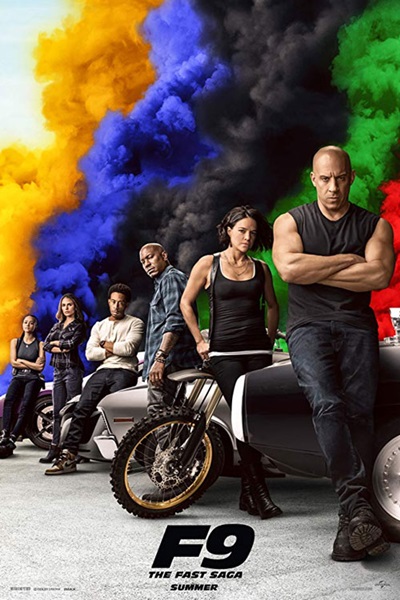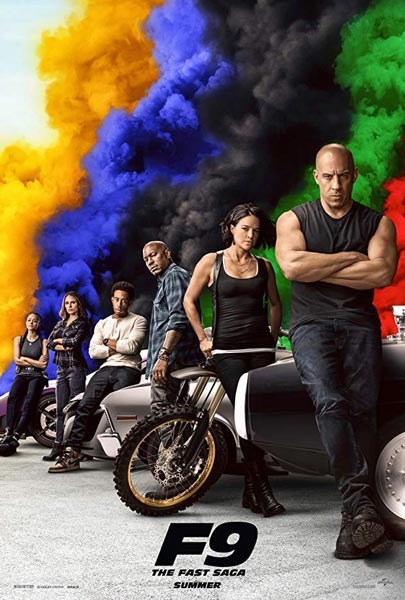
Michael Rooker
Biography
Life Story
Michael Rooker was born on April 6, 1955 in Jasper, Alabama. When he was thirteen, his parents divorced and he went with his mother to live in Chicago. He caught the acting bug while attending college, and began appearing in local stage productions. On first breaking into film, his intensity and "don't-mess-with-me" good looks were highlighted to chilling effect as he title character in Henry: Portrait of a Serial Killer (1986), filmed in 1986 but, due to its controversial nature, not released until 1990. Since that widely noticed and highly praised performance, much of his career has been spent playing brutes, villains and psychopaths. However, his occasional turns as a "good guy" are always well-acted and a welcome change for a talented actor too often typecast.
2017 marks an exciting time for Rooker, as he starred in two films premiering just two months of each other. On March 17, audiences saw Rooker in Blumhouse Tilt's indie horror thriller The Belko Experiment (2016). The film is the terrifying yet humorous look at a group of employees that become guinea pigs in a company-wide experiment that leads them to either kill their fellow employees or be killed themselves. Returning to his indie roots, Rooker starred as maintenance worker, Bud Melks, one of the employees trapped in the office building, who may or may not be able to kill his fellow staff member. On May 5, Rooker reprised his role as Yondu in the highly anticipated sequel, Guardians of the Galaxy Vol. 2 (2017). The film follows the same group of galactic underdogs saving the universe to a stellar soundtrack. Rooker's breakout performance earned him critical acclaim, as audiences were introduced to a more dramatic Yondu. The film went on to earn over $145 million domestically its opening weekend and has surpassed its predecessor by grossing over $850 million worldwide.
Rooker made his film debut, playing the title role in Henry: Portrait of a Serial Killer (1986), a film based on the confessions of serial killer Henry Lee Lucas. It was here that audiences were first introduced to Rooker's impeccable ability to channel a character's idiosyncrasies and subtleties. He has also starred in some of the most iconic films, such as Mississippi Burning (1988), Sea of Love (1989), JFK (1991), Tombstone (1993) and Jumper (2008) to name a few. In August 2014, Rooker starred in one of the most memorable franchises in the Marvel Universe, Guardians of the Galaxy (2014), as Yondu, the blue-skinned renegade space pirate and surrogate father to Peter Quill. The film went on to gross over $700 million at the worldwide box office and spent five weekends atop the box office, more than any other film in the Marvel Universe.
On the television front, Rooker is best known for his series regular role as Merle Dixon on AMC's hit series The Walking Dead (2010). Audiences loved to hate the ill-tempered redneck hunter and were sad to see him killed off the series in season three. Rooker has completed a variety of stints on some of the most prominent series on television: Criminal Minds (2005), CSI: Miami (2002), Las Vegas (2003), Law & Order (1990) and Archer (2009), among others. Additionally, Rooker's talents go beyond both film and television. He adds his voice to various video games, including The Walking Dead: Survival Instinct, Call of Duty: Black Ops 2, and Lollipop Chainsaw.
Family
Trivia
Studied Japanese martial art of Aikido with Fumio Toyoda Shihan prior to establishing himself in Chicago theatre.
Henry: Portrait of a Serial Killer (1986) was his first movie, which was filmed in 1986 but was not released until 1990.
Attended and graduated from Chicago's Goodman School of Drama.
Ranked #17 on Tropopkin magazine's Top 25 Most Intriguing People [Issue #100].
He unofficially reprised his role from Henry: Portrait of a Serial Killer (1986) for the music video, "All Wrapped Up", by the heavy metal band, American Head Charge.
Currently resides in Los Angeles, California.
Michael Rooker and Brian Thompson are the only actors to have acted alongside all three of the major action heroes of the 1980s. Rooker appeared with Sylvester Stallone in Cliffhanger (1993), Arnold Schwarzenegger in The 6th Day (2000) and Jean-Claude Van Damme in Replicant (2001). Thompson appeared with Sylvester Stallone in Cobra (1986), Arnold Schwarzenegger in The Terminator (1984) and Jean-Claude Van Damme in Lionheart (1990).
Has appeared in two films whose plot centered around human cloning: The 6th Day (2000) and Replicant (2001).
Has two daughters with his wife Margot LaRose: Alynne Rooker and Gillian Rooker.
Announced on Twitter, with a photo, that his first daughter gave birth to his first grandchild, a daughter, on Thanksgiving morning, 28 November 2013.
The Walking Dead (2010) is not the first series on which he played a character with a prosthetic arm. He played a one-armed, drug smuggling, boat captain with a hook for a hand in the CSI: Miami (2002) episode "Dead Zone".
Said in an interview, that when he was 13 years old, he saw a Volvo commercial that compared Volvos to other cars by hanging them upside down from a crane and dropping them on their roof. He was so impressed with how well the Volvo fared in the comparison that he's wanted one ever since. In 2014, he finally purchased an s60 Volvo Sedan.
He has worked with Sylvester Stallone on two films, Cliffhanger (1993) and Guardians of the Galaxy Vol. 2 (2017).
Personal Quotes 
[on his Henry character] I can bring that role back in a second. I just rip into the little idiosyncrasies and it's interesting, I've never said good-bye to Henry. That character, the introverted-ness, the soft-spoken quality is always there.
I don't approach a role by saying I'll be unsavory or unlikable. I think all the roles I've done have been very passionate people who go to absolute extremes to make their points.
(On filming Super (2010)) It was mayhem. No, not really. James Gunn tried to keep everything really organized. He had a good AD department. Everyone was professional, by which I mean all the actors of course had a lot of good experience, and the crew did as well. So even though the budget was small, everybody was dead-on and worked real hard. You have to when you do a little one like this, because you don't have time to waste. And there is no time. There's no money. In these kinds of productions, time is definitely money, so if you screw up a day or a shot, you may not get a chance to go back and get that shot and redo that day.
(On filming Crime Story: Pilot (1986)) That's one of the roles that I cut class at school to go do, and I never told them. They didn't know how else to work outside of school, but I did anyway. I think I ended up getting my SAG card with that. And I had to cut my hair. I was in a play, and I had to have my long hair for it. Then [the Crime Story producers] wanted me to cut my hair because I was a cop or something like that. So what we ended up doing was cutting just the edges and stuffing my hair up under my hat, my cop hat, and I did the role that way.
(On landing Henry: Portrait of a Serial Killer (1986)) I was doing a play called "Sea Marks", an Irish play, a two-person play. The director was doing the prosthetic work for Henry, and he turned me on to what was going on. "They're casting this guy. You should go and audition". I did, and I ended up getting the job. That's how it came about. That was my first real film role that had any sort of beginning, middle, and end. I was there throughout the whole piece. I started reading some books and material. Nothing really helped. I saw a couple of interviews with [Lucas] with a state trooper or something like that. So I got a little handle on it from that. He's very soft-spoken, and very shy and introverted. So I hooked into that, and that was my handle for the role. Everything else was just our imaginations, and my imagination. That was a really kind of crazy piece for me, because I was scared shitless. It was my first real role in film. I had done plays, but I wasn't sure if I was going to be good at this film stuff, so I really worked hard to make sure that I was there, I was bringing it that day and that minute. I stayed in character all day. Once I went in to work, I stayed in character all day long. So after the cut, I would leave the set and go to my room, close the door, and not talk to anybody. I wouldn't talk to anyone all day long during the filming of it. I would just do my work and go away. Come in, action, do my job, do what I needed to do, and then go away. And that's what helped me through the entire piece. It was way too difficult to go in and out of character, especially then, because I was young as an actor. I didn't know how this film stuff worked. In a play, you stay in character pretty much almost all the way through until the evening's over. So that's what I did here. I used that technique. I stayed in character as much as I possibly could all day long, or all night long, whatever the times were on the day we worked. People thought that was a little weird, that I'd just go away, that I wouldn't talk to them and stuff. Then they saw my room, and I had all my mirrors covered up, taped up. I didn't want to see images of myself, and I kept the room dark or black. And I just stayed in the room and just prepared for the next scene. So yeah, it was kind of weird and crazy, but that was a technique that seemed like it worked.






















